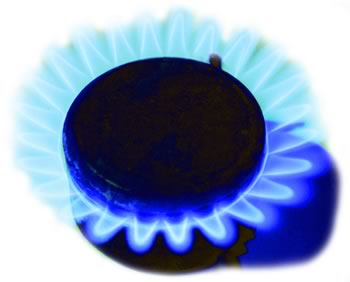Russia and Ukraine come to agreement in gas conflict
Experts believe that the Ukrainian economy will collapse if it accepts the market prices on Russian gas

Russia and Ukraine have finally reached an agreement four days after the gas crisis of Ukraine. The official statement on the matter was released Wednesday by Gazprom's chairman Aleksei Miller and Ukraine's Naftogaz, Aleksei Ivchenko. Both Russia and Ukraine, however, still stick to their previous views. Ukraine will pay $95 for 1,000 cubic meters of natural gas, but Russia will sell it for $230. Sergei Kupriyanov, an official spokesman for Gazprom, tried to explain the situation to reporters. 
Russian gas giant Gazprom kept its promise and cut gas deliveries to Ukrainian consumers. Gas shipments were stopped to Moldavia too: the republic also failed to achieve an agreement with Gazprom. Kupriyanov stated on January 2nd that Ukraine was stealing natural gas from the export pipeline. “About 95 million cubic meters of fuel have been stolen during the first day of the new year,” Sergei Kupriyanov said. Ukrainian authorities rejected the accusation and said that the country was using the natural gas from Turkmenistan which Ukraine was receiving according to previously concluded agreements. However, Kupriyanov said that Ukraine could not receive the fuel from Turkmenistan because the Russian gas monopoly had acquired all of it before.
Gazprom sent independent experts to transfer stations. The experts confirmed that up to 35 percent of exported natural gas had been lost in transit on the Ukrainian territory on January 1 2006. Ukraine did not let the experts examine the equipment of gas-transporting stations in the country, though. The Russia-Ukraine gas dispute took an international scale later when Gazprom's European partners complained of hold-ups in the deliveries of the Russian natural gas. Thirty-five percent of Germany's energy balance, for example, consists of the natural gas from Russia. EU countries warned the Ukrainian government of possible negative consequences. It was particularly said that the illegal usage of the exported gas may affect Ukraine's relations with the European Union. European countries indirectly supported Russia in the dispute.
Experts believe that the Ukrainian economy will collapse if it accepts the market prices on Russian gas. Cheap fuel from Russia is the foundation of the competitive ability for Ukrainian enterprises. Metallurgy, one of the basic industries in Ukraine's economy will become unprofitable at this point.
There was another way out. Moscow offered Kiev to pay for gas with Ukrainian companies' shares, the shares of Ukrainian gas-transporting enterprises first and foremost. A similar suggestion was made to Georgia. The authorities of the republic eventually agreed to consider such a variant. The US administration, however, set out a serious protest against Russia's offer. Georgia's Minister for Economic Reforms, Kakha Bendukidze, stated firmly that it was Georgia's internal matter.
Ukrainian President Viktor Yushchenko found himself in a tricky situation. On the one hand, Yushchenko was forced to make concessions with Moscow. On the other hand, he had to deal with a strong pressure both in and outside Ukraine. The former Ukrainian Prime Minister, Yulia Timoshenko, reminded Yushchenko of her existence too. Timoshenko said that she was ready to act as a mediator in the dispute between Moscow and Kiev. As a result, Viktor Yushchenko's rating started declining speedily.
The majority of Russians supported Gazprom's initiative on higher gas prices. The results of a recent opinion poll showed that many Russians were against the monopoly's decision to cut gas supplies to Ukraine. People said that they had great sympathies for the brotherly nation. Others reproached Gazprom of its “selfish goals.”
The gas conflict between Russia and Ukraine has been finally solved. Gazprom will be selling natural gas for $230, while Ukraine will be buying it for $95. The sides agreed to increase the gas transit rate from $1.09 to $1.6 per 1,000 cubic meters. The described agreement raised many questions with specialists and journalists: how is it possible to sell and buy at such different prices? Gazprom's Sergei Kupriyanov said that the share of Russian gas priced at $230 will be decreasing, while the share of the Asian natural gas acquired by Gazprom will be growing. The Russian gas giant acquires gas in Turkmenistan, Uzbekistan and Kazakhstan paying $55-65 per 1,000 cubic meters. Gazprom subsequently sells this gas for $95 which means that the corporation will obtain a considerable margin that will compensate the difference between the prices of $95 and $230 for the Russian gas.
Russian officials do not use the verb “to steal” anymore when they talk about the gas conflict with Ukraine. Sergei Kupriyanov said that Kiev set out its readiness to pay for the gas, which European customers did not receive because of Ukraine's illegal activities.
Subscribe to Pravda.Ru Telegram channel, Facebook, RSS!


